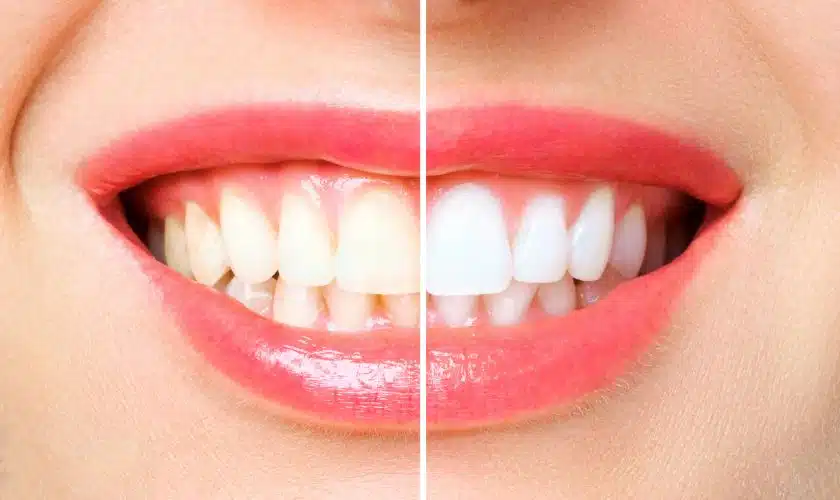
In the vast landscape of healthcare, dental health often finds itself in the shadows. While people diligently attend to their physical fitness and mental well-being, dental care sometimes takes a backseat until a problem arises. However, the significance of maintaining good oral hygiene cannot be overstated. If you’re seeking exceptional dental care, look no further than our professional dentist in San Antonio TX, providing top-notch services tailored to your needs. It’s not just about having a dazzling smile; it’s about overall health and well-being.
A Gateway to Overall Health
Your mouth is a gateway to the rest of your body. The state of your oral health can significantly impact your overall health. Poor oral hygiene can lead to various complications, including gum disease, tooth decay, and even tooth loss. But it doesn’t stop there. Research has shown links between oral health and several systemic diseases such as diabetes, heart disease, and respiratory infections. Bacteria from the mouth can enter the bloodstream, causing inflammation and potentially contributing to these serious health issues.
Prevention is Key
The good news is that many dental problems are preventable with proper oral care. Regular brushing and flossing, along with routine dental check-ups, form the cornerstone of preventive dental care. These simple habits can go a long way in maintaining healthy teeth and gums, preventing cavities, gum disease, and other oral health issues.
Boosting Confidence and Self-Esteem
Beyond the health benefits, good dental health can also have a profound impact on your confidence and self-esteem. A bright, healthy smile can boost your confidence in social and professional settings, enhancing your overall quality of life. Conversely, dental problems such as missing teeth or bad breath can lead to self-consciousness and embarrassment. Investing in your dental health can, therefore, be an investment in your overall well-being and success.
The Role of Diet and Lifestyle
Dental health isn’t just about brushing and flossing; diet and lifestyle also play crucial roles. Limiting sugary and acidic foods and beverages can help prevent tooth decay, while a balanced diet rich in vitamins and minerals promotes healthy teeth and gums. Similarly, avoiding tobacco and excessive alcohol consumption can reduce the risk of gum disease and oral cancer.
Access to Dental Care
Despite the importance of dental health, access to dental care remains a challenge for many people around the world. Financial barriers, lack of education, and shortage of dental professionals in certain areas can hinder access to essential dental services. Addressing these disparities is crucial to ensuring that everyone has the opportunity to maintain good oral health.
Oral Health and Nutrition
The connection between oral health and nutrition is often underestimated. A well-balanced diet not only provides essential nutrients for overall health but also contributes to strong teeth and gums. Calcium, phosphorus, vitamin C, and vitamin D are particularly important for maintaining dental health. Incorporating foods rich in these nutrients, such as dairy products, fruits, vegetables, and whole grains, can help support oral health and prevent dental issues.
The Impact of Stress on Oral Health
Stress is a common factor in modern life, and its effects extend beyond mental and emotional well-being to physical health, including oral health. Chronic stress can weaken the immune system, making individuals more susceptible to gum disease and other oral infections. Moreover, stress-related habits such as teeth grinding or clenching (bruxism) can cause significant damage to teeth and jaw muscles over time. Managing stress through relaxation techniques, exercise, and mindfulness can help mitigate its adverse effects on oral health.
The Importance of Oral Hygiene During Pregnancy
Pregnancy is a critical time to prioritize oral health, as hormonal changes can increase the risk of gum disease and other dental issues. Poor oral health during pregnancy has been linked to adverse pregnancy outcomes such as preterm birth and low birth weight. Expectant mothers should maintain good oral hygiene practices, including regular brushing and flossing, and attend dental check-ups to ensure optimal oral health for themselves and their babies.
Dental Health Across the Lifespan
Dental health needs evolve across the lifespan, from infancy to old age. Early childhood dental care, including regular visits to the dentist and proper oral hygiene practices, lays the foundation for a lifetime of good oral health. As individuals age, they may face unique challenges such as dry mouth, gum recession, and tooth sensitivity, which require tailored dental care strategies. Regular dental check-ups and communication with dental professionals are essential for addressing these evolving needs and maintaining oral health throughout life.
The Role of Community Outreach and Education
Promoting dental health requires a multifaceted approach that extends beyond individual behavior change to encompass community outreach and education. Increasing awareness about the importance of dental hygiene, providing resources for preventive care, and ensuring access to affordable dental services are vital components of improving oral health outcomes on a broader scale. Collaborative efforts involving healthcare providers, educators, policymakers, and community organizations can help address disparities in dental health and empower individuals to take control of their oral health.
Final Thoughts
Dental health is a cornerstone of overall well-being, encompassing physical, emotional, and social dimensions of health. By recognizing the interconnectedness of oral health with nutrition, stress management, life stages, and community support, we can cultivate a culture of preventive dental care that benefits individuals and communities alike. Investing in dental health today lays the groundwork for a brighter, healthier future for generations to come.
Conclusion
Dental health is not something to be overlooked or taken lightly. It’s intricately linked to your overall health and well-being, with far-reaching implications beyond just your smile. By prioritizing preventive care, adopting healthy habits, and seeking regular dental check-ups, you can safeguard your oral health and contribute to your overall quality of life. Remember, a healthy smile is not just a cosmetic asset; it’s a reflection of your commitment to yourself and your health.
